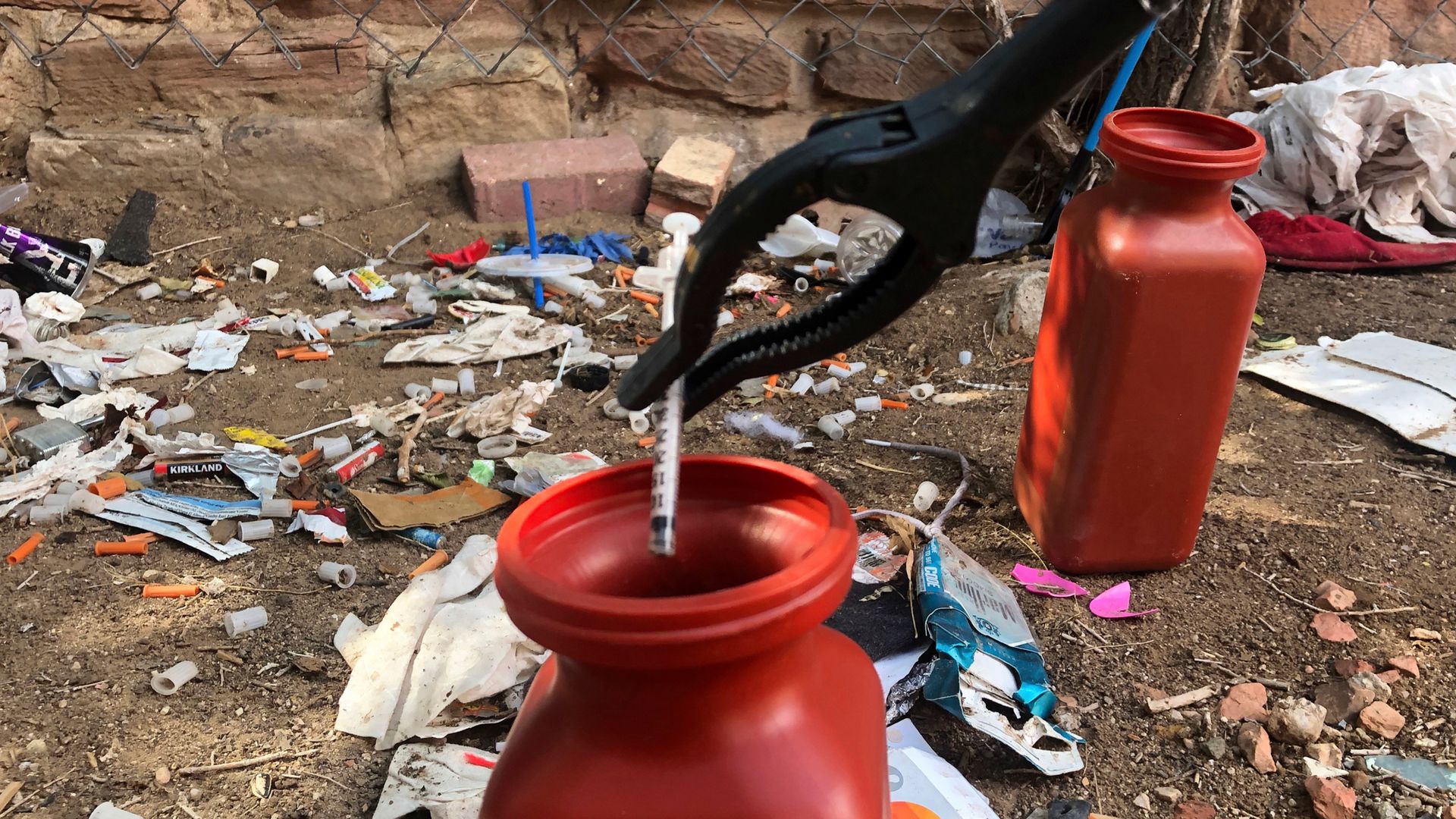
[LAUREN TAYLOR]
THE DECRIMINALIZATION OF ILLICIT DRUG POSSESSION IN OREGON– IS FACING SOME BUYERS REMORSE FROM VOTERS WHO APPROVED THE HISTORIC LEGISLATION KNOWN AS MEASURE 110 IN 2020.
REUTERS FOUND 56 PERCENT OREGONIANS NOW SUPPORT THE REPEAL OF THE LAW– AND 64 PERCENT WANT IT REFORMED.
WITH OVERDOSE DEATHS STILL ON THE RISE, THE CHANGE THE LAW WAS SUPPOSED TO SPUR DOESN’T APPEAR TO BE HAPPENING.
NOW, WITH ENHANCED PUBLIC PRESSURE, STATE LAWMAKERS ARE REPORTEDLY DISCUSSING THE RE-CRIMINALIZATION OF ILLICIT DRUGS.
PROPOSALS REPORTEDLY IN THE STATEHOUSE INCLUDE HARSHER PENALTIES FOR DRUG POSSESSION, LIKE JAIL TIME– OR THE OPTIONS TO SEEK TREATMENT TO AVOID TIME BEHIND BARS OR PROBATION.
STRAIGHT ARROW NEWS REACHED OUT TO SENATE MAJORITY LEADER KATE LIEBER– WHOSE COMMUNICATIONS DIRECTOR TOLD US “SEVERAL PROPOSALS ARE ON THE TABLE RIGHT NOW TO REFORM OREGON’S COMPREHENSIVE APPROACH TO THE DRUG CRISIS,” WHICH INCLUDE MORE THAN JUST MEASURE 110, “BUT NO SOLUTIONS HAVE BEEN AGREED TO.”
IN ADDITION TO LEGISLATIVE PROPOSALS, TWO VOTER INITIATIVES AIMING TO REFORM MEASURE 110– HAVE BEEN FILED BY A GROUP OF BUSINESS AND POLITICAL LEADERS.
MAX WILLIAMS, A FORMER REPUBLICAN STATE LAWMAKER AND HEAD OF THE OREGON DEPARTMENT OF CORRECTIONS TOLD OREGON PUBLIC BROADCASTING THE INITIATIVES WOULD MAKE SMALL AMOUNTS OF FENTANYL, METHAMPHETAMINE AND HEROIN ILLEGAL AGAIN.
OPB REPORTS WEALTHY DONORS HOPE STATE LAWMAKERS PASS REFORMS THIS MONTH– BUT FILED THE INITIATIVES AS A BACKUP PLAN.
IF ENOUGH SIGNATURES ARE GATHERED BY PETITIONERS– THE MEASURES WOULD LIKELY APPEAR ON THE BALLOT FOR OREGONIANS THIS FALL.
THE CURRENT LAW FEATURES A NEW APPROACH TO COMBATING THE DRUG CRISIS.
INSTEAD OF PUNISHING ADDICTS, IT’S DESIGNED TO LEAD THEM TO RECOVERY SERVICES.
BUT THE LAW DOESN’T APPEAR TO BE WORKING VERY WELL– WITH JUST FOUR PERCENT OF PEOPLE WHO ARE GIVEN A CITATION, WHICH DISPLAYS A TREATMENT SERVICE NUMBER ON THE BACK, ACTUALLY SEEKING HELP, ACCORDING TO STATE DATA.
THE CITATIONS ARE 100-DOLLARS, HOWEVER, THERE IS NO LEGAL PENALTY FOR IGNORING THEM.
WITH MEASURE 110–
HUNDREDS OF MILLIONS OF DOLLARS IN CANNABIS TAXES HAVE ALSO BEEN FUNNELED INTO ADDICTION RECOVERY SERVICES.
BUT, ACCORDING TO A STATE AUDIT, OREGON NEVER HAD AN ADEQUATE INFRASTRUCTURE FOR DRUG TREATMENT TO BEGIN WITH.
FUNDS FROM THE LAW WERE ALSO SLOW TO BE DISTRIBUTED.
AND FEDERAL DATA FROM 2020 RANKED OREGON LAST IN THE NATION FOR ACCESS TO DRUG TREATMENT. THE REASON CITED, “HISTORIC UNDERINVESTMENT.”
DESPITE A LACK OF RESULTS– RESEARCH FROM NEW YORK UNIVERSITY’S GROSSMAN SCHOOL OF MEDICINE SAYS MEASURE 110 CAN NOT BE BLAMED FOR A DEEPENING OF THE EPIDEMIC.
THE STUDY’S SENIOR INVESTIGATOR TOLD OREGON PUBLIC BROADCASTING–
“OVERDOSES WENT UP BASICALLY EVERYWHERE. WHAT DIDN’T HAPPEN, IS THAT THEY DIDN’T SEEM TO GO UP MORE IN OREGON AFTER MEASURE 110 WENT INTO EFFECT.”
CDC DATA SHOWS MORE THAN 109,000 AMERICANS DIED OF OVERDOSES AND OREGON IS ONE OF SEVEN STATES WHICH SAW A DOUBLE-DIGIT PERCENTAGE INCREASE IN OVERDOSE DEATHS, FROM 2022 TO 2023.
CNN REPORTS FENTANYL AND OTHER SYNTHETIC OPIOIDS WERE TO BLAME IN MOST OF THE DEATHS.







